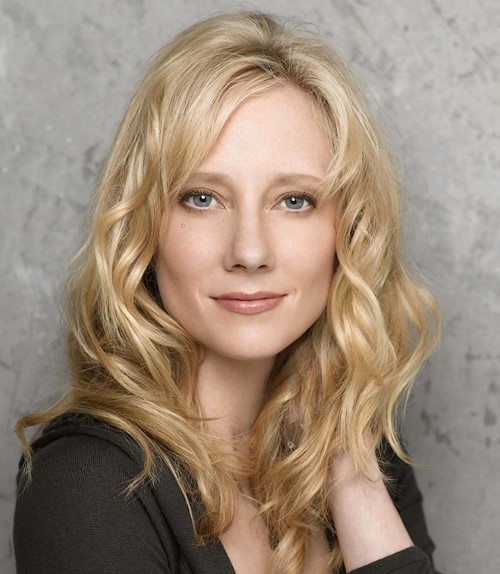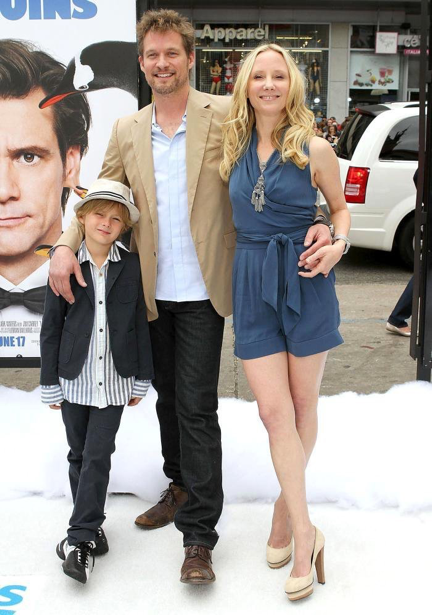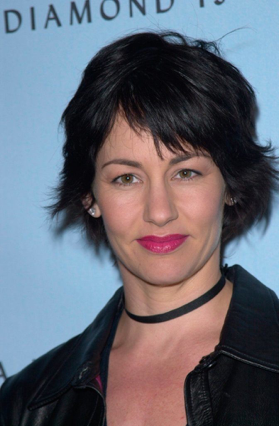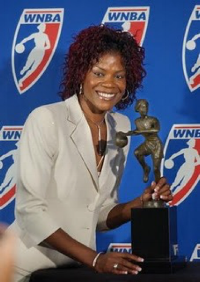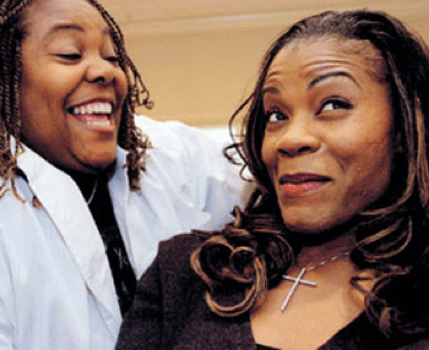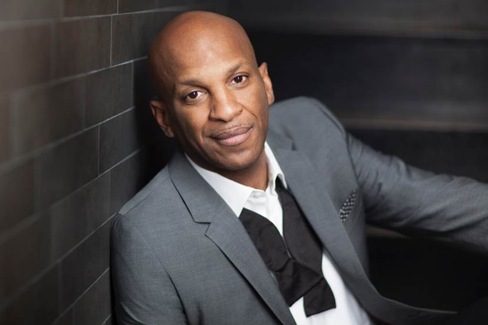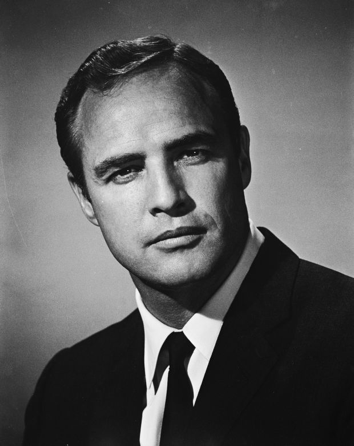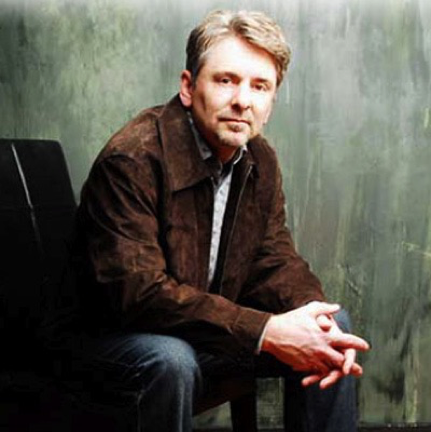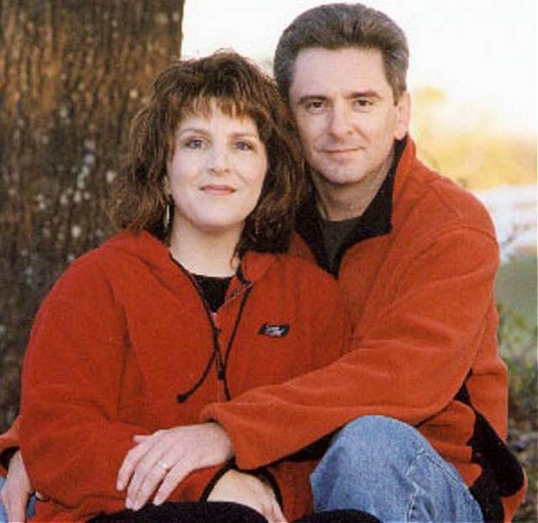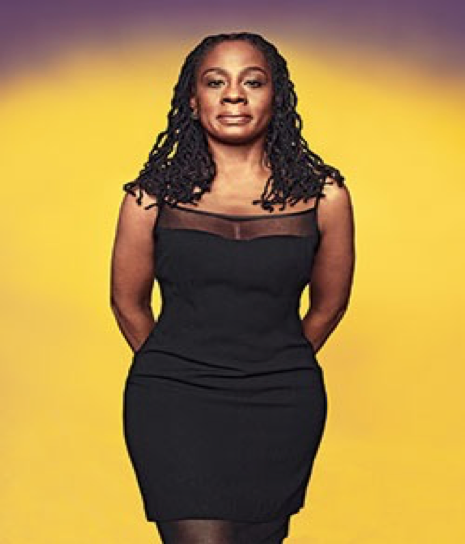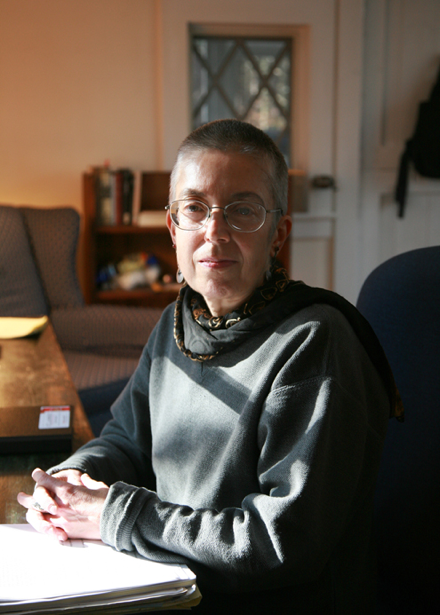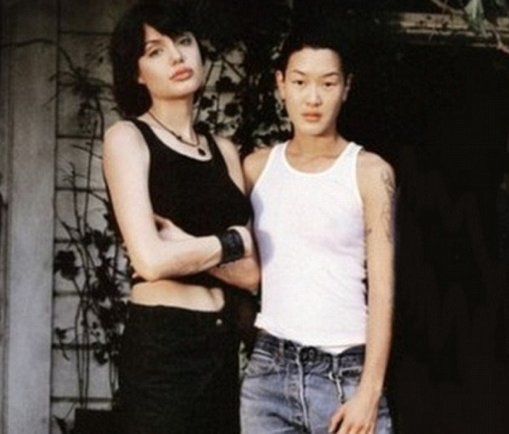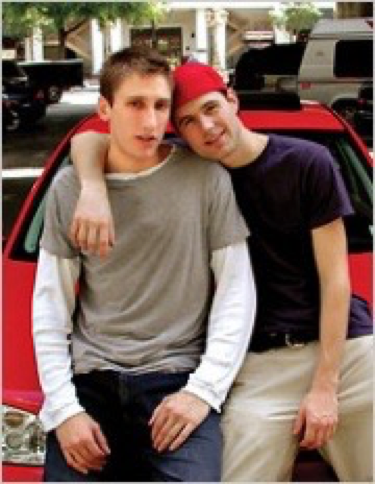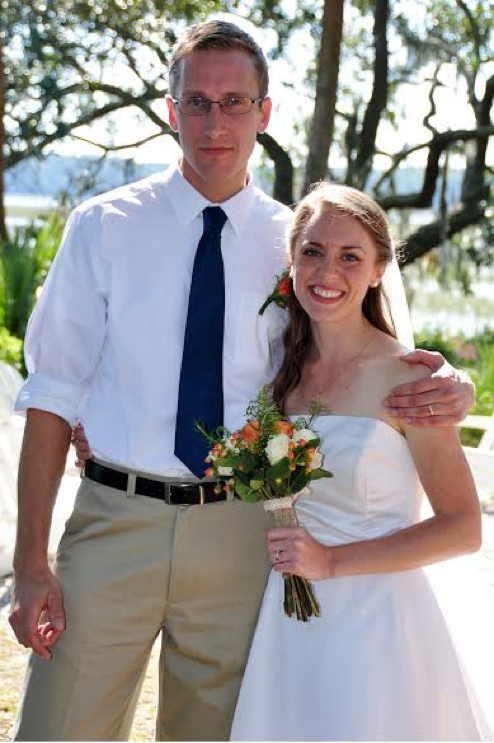by Joseph Nicolosi, Ph.D.
The primary focus of reparative therapy for men is always on the healing of same-sex relationships. A reparative therapist strongly encourages the establishment of healthy, non-erotic friendships with men.
There comes a time, however, when some clients evolve to a point of readiness to enter an intimate relationship with a woman. This readiness must be expressed by the client himself, and cannot be encouraged by the therapist in the same way we would urge a client to seek out male friendships.
Any success with women will not endure without the continuation of the client’s ongoing, satisfying male relationships.
To understand the particular challenges of the homosexually oriented man in his relationship to women, we must first begin by understanding the classic triadic relationship which is seen so predictably in the history of our clients. This triadic relationship throws the boy on the side of the mother, with father isolated from his wife and son. This misalignment gives the boy a distorted perspective of himself in relationship to the masculine and the feminine. The boy’s father remains a mystery, and his mother is all too well known.
In life, men and women are always challenged to try to understand each other. Straight men are often accused of failing to meet this challenge, and it is said that they are typically insensitive to women. Paradoxically, however, it is the same insensitivity which allows the heterosexual man to develop an intimate relationship with the woman. He is not so attuned to females that he overreacts and loses himself in response to their needs.
To the straight man, women are mysteries, but this is the price the straight man must pay for the development of his heterosexuality.
If the straight man can be faulted for insensitivity, the homosexual man can be faulted for being too sensitive to women and emotionally over-involved with them. Said one homosexual client as he reviewed his failed female relationships, “I have learned to be too open to women in an unhealthy way.” Growing up, he had been too intensely tied in to his mother’s emotions.
Mothers want a compliant, well-behaved, good little boy. The prehomosexual boy offers this appealing image of the good boy to please his mother–behind which, however, he hides his true self in self-protection. He becomes the good little boy on the outside, but on the inside, he remains intensely confused about his needs and his identity.
As the client approaches the challenge of an intimate adult relationship with a woman, this drama of the early relationship with the mother will be re-enacted.
The Challenge
For the man with a homosexual background, the challenge is to enter into a relationship with a woman while maintaining a sense of self-possession. The job of the therapist is to monitor the client’s internal sense of self as he approaches the woman. The therapist keeps the client honest with himself and prevents him from falling into the false self, which he will easily do as he did in relationship with mother. While there may be numerous versions, the typical false selves that emerge in a relationship with a woman are:
- The passive-compliant.
- The theatrical entertainer.
- The empathic counselor.
The therapist is watching for the client’s tendency to abandon himself and slip into one of those false selves when he is with her. By becoming too sensitive to the woman’s expectations for him, he abandons all of his needs and wants and desires for her needs, thus losing his self-reference.
Trust
The successful shift to heterosexual marriage is all about trust:
“Can I trust this woman with my feelings? Will she manipulate and confuse me? Will she fail to see me for who I am, and smother me with her expectations? Will she act like she cares for me but really use me or try to control me? Will I be able to be myself?”
The role of the therapist is to listen for the man’s compromises of selfhood.
The Ongoing Need for Male Friendships
No matter how successful his relationship with his wife, the man with the homosexual background will always need to have good male friendships. Many wives–even those wives who did not know that their husbands had a homosexual problem–have told me that when their husbands spend time with their male friends, they are happier and more attentive at home, and more emotionally available to them and the children. When their husbands shrink from men and fail to maintain male friendships, they become withdrawn, moody and emotionally unavailable to them and the children.
The married man with a homosexual background may find conjugal relations with his wife to be less intense. However, he is left with a sense of rightness, contentment and well-being. Rather than feeling left depleted by sex (as he felt with men) he is renewed and feels satisfied and good about himself, as he experiences himself to be more fully a participant in the gendered world.
Some Thoughts on the Boy Scouts
by Joseph Nicolosi, Ph.D.
The problem is not about admitting homosexual boys; it’s about the transmission of an Ideology.
Should homosexually oriented boys be admitted into the Boy Scouts? ”Yes,” I’ve often said, because boys with same-sex attractions could benefit greatly from male bonding experiences.
Then what is the source of the conflict?
Youth groups provide an important rite of passage for boys growing into manhood. In fact, the Boy Scouts of America (BSA) never did exclude same-sex attracted members— their policy was “don’t ask, don’t tell,” like the policy once held by the military.
That worked well until gay activists insisted that boys should enter the Scouts with a “gay is who I am” mentality.
Gay activists successfully played it to the press that the BSA was discriminating against homosexual boys— that they didn’t want them.
But the BSA should have fought for what they really stood for: that all boys are welcome, but that the BSA will continue to promote the Judeo-Christian understanding of human identity and biological design.
People with a worldview rooted in traditional faith see homosexuality as a superficial layer of personal identity. Same-sex orientation is seen by them as evidence of trauma..as a problematic attraction…as a chosen identity that is disconnected from biological reality. A person’s truest and deepest identity is ultimately heterosexual, which will put him in harmony with his design. This is the worldview shared by traditional Christians, traditional Jews, Muslims, and Ba’hai, among other faiths. Their worldview cannot simply be discounted as “prejudice” rooted in “animus.”
But gay activists believe that a gay identity must be accepted by everyone as that particular person’s nature. Yet people of traditional faith are confident that on a deeper, truer level, these boys were created for something greater.
That’s not an easy concept to argue, in an age where every individual is said to be free to choose his own identity— male, female, non-binary gender, “questioning,” bisexual, gay or straight. In today’s world, it seems like a slap in the face to tell someone, ‘This can’t be who you really are.’”
The Problem of Gay Scout Leaders
What’s going to happen with the new Scout policy of accepting gay-identified Scout leaders? What will you say when you see a gay leader encouraging the boys to “discover who they are” with the idea that they, too may be gay?” Because this will inevitably happen.
One could argue that the Boy Scouts are a-sexual. They don’t talk about sex. They’re not allowed to.
But this issue is not about sex— it’s about the transmission of an ideology. When gay activists get into positions of Scout leadership, they will, naturally, want to serve as role models. They will be on a mission to insist that homosexuality is the same as heterosexuality. They’ll talk about their belief that children don’t need two married biological parents. They’ll introduce the boys to their partner or ‘husband.’ They will present their lives as examples, and themselves as role models.
That approach will teach not just that this particular, individual Scout leader has qualities to emulate (which no doubt is true; the gay Scout leader may have many good character qualities), but it mixes up the example of his personal character with his homosexuality, and sends the message that homosexuality itself is good.
People have caved in on this issue; in our schools, our youth organizations, the media, movies, government— the psychological and medical professions…everywhere; the accepted view is that the traditional understanding of human identity is “hatred.” Almost no one is left to speak the truth about human design and purpose.
For people of traditional faith, new Scouting alternatives are being created. One good alternative to look into is Trail Life USA.
by Joseph Nicolosi, Ph.D.
This is the paradox of Reparative Therapy®: it is successful only if the client first faces and accepts his unwanted feelings.
The more the person sees the thing inside himself that he rejects, and sees it in the light of truth, the more it dissipates. The task is not to look away from the feelings, but to look through them.
When we use the “Triangle of Containment” in therapy, the client is asked to focus directly on a homosexual thought or fantasy. At the same time, he should actively attend to his bodily sensations. While doing this, he is asked to stay connected to the therapist. When the client is holding on to the homoerotic image, he will usually experience a simultaneous bodily arousal. (Some men describe it as a genital surge, a rush or a “zap.”) If he can accept his bodily homoerotic experience while staying connected to the therapist, the sexual feeling soon transforms into something else: the recognition of deeper, pain-generated emotional needs which have nothing to do with sexuality.
Re-experiencing the feelings in the presence of an accepting therapist helps remove that shame; the client is then better able to see his same-sex desire for what it is. One man described his liberation from shame by looking deeper the homoerotic illusion. “Looking at it in the light of day,” he said, “takes the ‘leprosy’ out of it.”
When we push the shame aside–facing the feared fantasies directly–we see the true nature of the man’s homoerotic attraction, which is about attachment loss. When the man looks past that erotically charged male symbol -the icon of a missing part of his identity—he can begin to fulfill the same-sex attachment needs that are truly at the core of his deepest longings.
Homosexuality is not fixed and unchangeable, as these public figures reveal. Some of them celebrate their sexual fluidity as a good thing; others believe that the only true expression of sexuality is heterosexuality, since it is consistent with our biological design.
But the message is the same from all of them — people can change.
Anne Heche
Anne (born May 25, 1969) was an American actress who died in 2022. Her film credits include Six Days Seven Nights, Return to Paradise, I Know What You Did Last Summer, John Q and Volcano. She also starred in the television series Men in Trees, Hung, and, most recently, in Save Me, Dig and Quantico.
Heche and DeGeneres started dating in 1997, and at one point, said they would get a civil union if such became legal in Vermont. They broke up in August 2000.
Reporters asked “what the walls would say” if their $3.5 million L.A. pad could talk, more than three years after their going public with their relationship. “They’d be saying that we are very excited and we’re very happy and in love three years later,” DeGeneres said.
“Yeah,” Heche agreed. “We’re very lucky women, that we get to have what we have.”
“It’s a celebration every single day,” DeGeneres continued. “It’s kind of disgusting and crazy that we’re like … Oh, we’re so lucky.”
“Yeah,” Heche agreed. “We’re lucky, we’re so lucky.”[1]
Here statement about not being gay any more:
Anne then left Ellen DeGeneres to marry James Tupper.
From an interview:
[the interviewer] said “You were gay for a bit… you have an open mind.” Anne said “I have yes – had an open mind. But then I make decisions, ‘I have an open mind, but then ‘I’ve learned about that….fantastic’… I have an open mind, I can change my mind…There’s a door, we can close that door. We can go to another door.”[2]
Jessica Ellen Cornish (Jessie J)
Jessie J is an English singer and songwriter. She is the first British female artist to have six top ten singles from a studio album. The release of her third album Sweet Talker (2014) was preceded by the single “Bang Bang” which debuted at number one in the UK and went multi-platinum worldwide. As of January 2015, Jessie J had sold over 20 million singles and 3 million albums worldwide.
Her statement when she was gay:
She said in an interview:
If I meet someone and I like them, I don’t care if they’re a boy or a girl.
Her statement about not being gay any more:
From an interview about her previous lesbian attractions:
Passing comments [were] made into ‘facts’ that can never change. Guess what? They can change. As they should. And I have changed and grown up ALOT, and that’s allowed. And I feel more comfortable in my own skin now than ever before. We all are on a journey and I refuse to feel boxed and judged because of how I felt once! A long-ass time ago. Vegetarians eat meat sometimes. Get it? People change.[3]
Bob Dixon
Sen. Bob Dixon is an American Republican politician currently serving the Missouri State Senate who. Dixon was first elected to the house in 2002 and served four terms. Between 2004 and 2008 he served as Majority Caucus Chairman and chaired the House Transportation committee.
Statement about not being gay any more:
Missouri State Sen. Bob Dixon claims that childhood abuse and teenage confusion caused him to engage in gay relationships for a few years.
Dixon’s campaign issued a statement touting his faith in God and support for traditional marriage, while condemning any opponents who try to use his past against him.
“Through the years, I have publicly spoken about being abused as a child and the confusion this caused me as a teenager,” said Dixon in the statement. “There are literally thousands of Missourians who will understand how heartbreaking childhood abuse can be — though few might be willing to acknowledge it.
“I have put the childhood abuse, and the teenage confusion behind me,” said Dixon, who has a wife and three children. “What others intended for harm has resulted in untold good. I have overcome, and will not allow evil to win.”[4]
Julie Cypher
Julie Cypher is a film director who is best known as the former partner of Melissa Etheridge, a singer-songwriter, musician, and activist. Known for being one-half of one of the first “out” lesbian celebrity couples, Cypher advocated for gay rights. She and Etheridge then split and Cypher married Matthew Hale.
Her statement when she was gay:
Well, I was straight. I was married to Lou Diamond Phillips. I’d known lesbians as friends in college, but I’d never met a woman that I was attracted to, so lesbianism had never occurred to me—until I met Melissa. Then it occurred very strongly.[5]
From an interview with Cypher and Etheridge…
“Do you now consider yourself a lesbian?”
Cypher: “I absolutely do.”
“Would you be with a man again?”
Cypher: “I doubt it. I would look for the person, for the soul, but I just feel that the female psyche is where I find my satisfaction with relationships.”
Her statement about not being gay:
In 1999, she said, “You know, I’ve tried and I’ve tried these last couple of years, and I’m just not gay.”
Gillian Anderson
Gillian Leigh Anderson (born 1968) is an American-British film, television and theatre actress. Her credits include the roles of FBI Special Agent Dana Scully in The X-Files, ill-fated socialite Lily Bart in The House of Mirth (2000), and Lady Dedlock in the successful BBC production of Charles Dickens’ Bleak House.
In an interview with Out magazine, she described a lesbian relationship with a woman who had recently died.[7]
Her statement about not being in a gay lifestyle any more:
Anderson now identifies as heterosexual and has been twice married to men.
I am an actively heterosexual woman who celebrates however people want to express their sexuality. [8]
She is currently single, but looking to start a new relationship with a man.
Sheryl Swoopes
Sheryl Swoopes (born 1971) is a retired American professional basketball player and the head coach of the women’s basketball team of Loyola University, Chicago. She is frequently referred to as the “female Michael Jordan.”
Her statement when she was gay:
“I’m not bisexual,” she said. “I don’t think I was born [gay]. Again, it was a choice. As I got older, once I got divorced, it wasn’t like I was looking for another relationship, man or woman. I just got feelings for another woman. I didn’t understand it at the time, because I had never had those feelings before.”
One reporter at Out Sports explains the situation:
“Sheryl is just more proof that no one is born gay, it is a learned behavior brought on by experiences and circumstances in one’s life. I am very happy for Sheryl…”
Statement about not being gay any more:
From an interview when Swoopes was asked if she was “born gay”:
Swoopes: “No and that’s probably confusing to some, because I know a lot of people believe that you are.”[9]
Swoopes now has been twice married to men.
David Kyle Foster
David Kyle Foster is an author, professor, television producer, and the director and founder of Mastering Life Ministries. He has spoken on five continents about the healing of sexual brokenness, and has appeared on The 700 Club, The Dr. Phil Show, The Coral Ridge Hour, The Abundant Life, Cope, His Place, Home Life, and has been the host of Covenant Award winning “Mastering Life” on the Focus on the Family Radio Network.
What he said about having been gay:
“Because of my fear of mature women, I chose to see them as sexless ‘Snow White’ figures. My favorite actresses were Julie Andrews and Hayley Mills. When I became sexually active in my late teens, it quickly became far less stressful to go with males. Besides, most of the ones who came after me were older men who didn’t expect reciprocation or commitment on my part. Deep inside, I was still looking for ‘Father Knows Best”,’ and when older men gave me the time and attention that I craved, the results were almost inevitable.”[10]
What he says today:
Excerpts from David Kyle Foster’s testimony on the PFOX website: …
“Perhaps my personal witness to change can be of some help. I have been changed in many and varied ways over the past 32 years after seeking the Lord at the age of 29 to deliver me from a bondage to homosexuality, pornography and other sexually addictive behaviors. After 10 years of active involvement in the ‘anything but gay’ homosexual lifestyle, Jesus Christ revealed Himself to me and has set me free from what statistics show to be a death-style lain upon the foundations of profound brokenness….My identity has been completely transformed and I see myself as the heterosexual male that God had always created me to be.”[11]
Donald Andrew McClurkin (Donnie McClurkin)
Donald Andrew “Donnie” McClurkin, Jr. (born 1959) is an American gospel singer and minister. He has won three Grammy awards, and is one of the top selling Gospel music artists, selling over 10 million albums worldwide.
Statement about when he was gay:
McClurkin, in 2002, told a Christian website that, due to the sexual abuse of his earlier years, he had struggled with homosexuality.
Statement about not being gay anymore:
“I’ve been through this and have experienced God’s power to change my lifestyle. I am delivered and I know God can deliver others, too.”[13]
Marlon Brando
Marlon Brando was an American actor, film director, and activist. He was one of only three professional actors, along with Charlie Chaplin and Marilyn Monroe, named in 1999 by Time magazine as one of its 100 Most Important People of the Century.
Statement about hisinvolvement in homosexuality:
In 1976 he told a French journalist
“I too have had homosexual experiences, and I am not ashamed. I’d never paid much attention to what people think about me. Deep down I feel a bit ambiguous.”[14]
On living a straight lifestyle:
Brando ended up having several marriages with women— Anna Kashfi (m. 1957; div. 1959), Movita Castaneda (m. 1960; div. 1962), Tarita Teriipaia (m. 1962; div. 1972).
Dennis Jernigan
Dennis Jernigan is a singer and songwriter of contemporary Christian music. He is native to Oklahoma, and headquarters a music-based Christian ministry from there.
Statement about not being gay anymore:
From a blog by Dennis Jernigan…
“This statement will probably produce a lot of controversy, but this is how I think of myself: I do not consider myself a recovering/former/ex gay. I consider myself a new creation. The slate of my mind is being erased and the old thoughts are being replaced with new thinking. What I have discovered in the process is that when I change my thoughts, my attitudes change. When I change my attitudes, my behaviors change. When I change my behaviors, my perspectives change. When my perspectives change, I see life from a vantage point that homosexuality NEVER afforded me.”[15]
Dennis Jernigan lives with his wife Melinda (pictured together at left), in Oklahoma on the farm where they raised their nine children.
Chirlane McCray
Chirlane I. McCray (born 1954) is a writer, editor, and has worked in politics as a speechwriter. She is married to former New York City Mayor Bill del Blasio, and was the “First Lady” of New York City.
Statement when she was gay:
“I survived the tears, the isolation and the feeling that something was terribly wrong with me for loving another woman… coming to terms with my life as a lesbian has been easier for me than it has been for many.”[15]
Asked how she had left a lesbian lifestyle to marry a man, she explained it this way:
“By putting aside the assumptions I had about the form and package my love would come in. By letting myself be as free as I felt when I went natural.”[16]
Jan Clausen
Jan Clausen is the author of a dozen books in a range of genres. Clausen’s poetry and creative prose are widely published in journals and anthologies.
When she was in a gay lifestyle:
“After 12 years in a lesbian marriage, Jan Clausen fell in love with a man. Since her identities as writer and lesbian were intertwined, all hell broke loose. Clausen’s books are yanked off college reading lists. She loses friends, community, and status.”[17]
When she left the gay lifestyle:
Seeking to contradict the idea that people are born gay, she said,
“What’s got to stop is the rigging of history to make the ‘either/or’ look permanent and universal.”[18]
Angelina Jolie
Angelina Jolie is one of Hollywood’s highest-paid actress as well as one of the most influential people in the American entertainment industry.
With Partner: Jenny Shimizu
Statement when she was living as a lesbian:
In a 1997 interview with Girlfriends magazine:
“I fell in love with her the first second I saw her. ‘I would probably have married Jenny if I hadn’t married my [first] husband.’”[19]
Statement about not being in a lesbian lifestyle anymore:
Jolie spoke to Us Weekly soon after marrying Brad Pitt, saying,
“It’s been an amazing year. I married my love.”[20]
Michael Glatze
Michael Glatze was the co-founder of the group “Young Gay America” and a former writer/editor and passionate advocate for gay rights. Later, he received media coverage for publicly announcing that he no longer identified as a homosexual, and that he believed that a gay identity is not in harmony with our created design.
Statement about when he was gay:
With former Partner: Benjie Nycum
“I was always a theoretical thinker, and I got into Queer Theory and I analyzed all the different facets of sexual identity, and I identified as queer.”[23]
Statement about not being gay anymore:
“Homosexuality, delivered to young minds, is by its very nature pornographic. It destroys impressionable minds and confuses their developing sexuality; I did not realize this, however, until I was 30 years old,”
Glatze wrote in an article in WorldNetDaily.
With spouse, Rebekah Glatze
“It became clear to me, as I really thought about it – and really prayed about it – that homosexuality prevents us from finding our true self within. We cannot see the truth when we’re blinded by homosexuality.”[24]
With partner: Michelle Clunie
“Best friends for 25 years, mother and father are both very excited about the upcoming birth and look forward to co-parenting the child together. The pair have been planning this baby for years and have been trying for the last two.”[26]
Wiki and Me:
My Battle with Wikipedia
by Joseph Nicolosi, Ph.D.
For almost a year now, I have been battling Wikipedia to remove false information about me. To date, they have ignored all of my attempts to correct their errors.
Most readers think that Wikipedia is a neutral, authoritative source. In fact, it is compiled by volunteers— not paid experts— some of whom (especially in areas of social controversy) are activists seeking to influence public opinion.
Specifically, my therapy is wrongly described in Wikipedia. In fact, I never tell SSA men that they should avoid opera and art museums; attend church; learn to mimic “straight” ways of walking and talking; join group therapy; begin dating and then marry, etc. Whenever I correct these areas on the Wikipedia page, the entries are promptly changed back into their original form by an activist writer.
To readers interested in the details of the error, they are described below.
—————
In the Wikipedia page on “Conversion Therapy,” under the subsection: Reparative Therapy, it states:
“Nicolosi’s intervention plans involve conditioning a man to a traditional masculine gender role.
He should—
(1) participate in sports activities,
(2) avoid activities considered of interest to homosexuals, such [as] art museums, opera, symphonies,
(3) avoid women unless it is for romantic contact,
(4) increase time spent with heterosexual men in order to learn to mimic heterosexual male ways of walking, talking, and interacting with other heterosexual men,
(5) Attend church and join a men’s church group,
(6) attend reparative therapy group to discuss progress, or slips back into homosexuality,
(7) become more assertive with women through flirting and dating,
(8) begin heterosexual dating,
(9) engage in heterosexual intercourse,
(10) enter into heterosexual marriage, and
(11) father children” (footnote #82).
Wikipedia Footnote #82: Bright, Chuck, (December 2004) “Deconstructing Reparative Therapy: An Examination of the Processes Involved When Attempting to Change Sexual Orientation,” Clinical Social Work Journal, 32, (4) 471-481,
(Note: The Bright reference is incorrect. It is not 2004 but 2001. The correct reference is: Bright, Chuck, L.C.S.W. (2001) “Deconstructing Reparative therapy: An Examination of the processes involved when attempting to change sexual Orientation,” Clinical Social Work Journal, December 2004 vol. 32, Issue 4, pp. 471-481.)
The description of my work is wrong— but even beyond the false content, we see that there is no traceable source for the false content.
In the Clinical Social Work article, Bright does indeed describe the 11 interventions as wrongly stated in Wikipedia, but he attributes them to someone else— Haldeman, (2001). Haldeman’s article is entitled “Therapeutic antidotes: Helping gay and bisexual men recover from conversion therapies,” referenced as being in A. Shidlo, M. Schroeder, and J. Drescher, the book “Sexual conversion therapy: Ethical, clinical, and research perspectives,” New York, NY: Haworth Press.
When we look at Haldeman (2001) we see that there is no such article in that book, by that title written by Haldeman. Rather, the Haldeman article is entitled: “Sexual Conversion Therapy: Ethical, Clinical and Research Perspectives.” That article contains no such pages as Bright references. Further, there is no such quote. In fact, Haldeman never mentions Nicolosi at all and neither does the Haldeman article reference Nicolosi.
Even if the “11 Interventions” were accurate descriptions of my therapy, it is apparent that the Wikipedia source attribution is incorrect and deserves to be removed. You would assume that Wikipedia would want to correct the error, if accuracy were a concern.
I will continue to battle Wikipedia to set the record straight. Stay tuned.
by Joseph Nicolosi, Ph.D. and Linda Ames Nicolosi
The narcissistic parent loves the child in his own way, yet he interferes with the child’s uniqueness. The child may then unconsciously choose to reject his own gender.
Narcissistic people are often well-intended, even benevolent. Yet they create havoc in the lives of the people around them.
Your first encounter with such a person may leave you charmed, yet you will also come away feeling strangely dissatisfied and irritated. There is a vague perception of having been taken advantage of, and “used” — yet you can’t quite put your finger on what caused that feeling.
All of us have some narcissistic features. But we are speaking here about the person for whom narcissism is the primary, organizing character trait.
Children of narcissists
The narcissistic parent “loves” the child in his own way, yet he unintentionally steals the child’s uniqueness. The child becomes, for the parent, an object for gratification. When the child expresses something unique about himself, if it doesn’t gratify the image the parent has for the child, the parent will either react negatively, or not react at all.
This message is conveyed nonverbally and goes “under the radar” of conscious awareness.
The messages are conveyed in four ways—facial expression, vocal tone, body language and context. For an example of context, a boy comes home from school, and happily announces to his mother that he got an A on an exam, and the mother says, “Are you hungry?” The boy mutters no, and quietly goes to his room. Somehow he feels deflated, but can’t put his finger on why. The mother’s asking “Are you hungry?” unconsciously communicates the unimportance, for her, of his achieving something that he (but not she) values. To the sensitive child, her reaction conveys devaluation, diminishment, and becomes a shame moment.
Narcissistic people are often charming, and within five minutes of meeting such a person, you may have the feeling that you have known them all your life— there is an instant sense of familiarity; they make you feel good about yourself, but you are walking into a trap. One could say “they flatter your pride before they strike”; but “pride goeth before a fall.”
As an example of the “deflation” that narcissists cause, a young couple came to me who had had been trying to adopt a child from overseas; finally, they were approved for the adoption of the child they had been waiting for. The couple could not wait to have lunch with her mother to announce the good news, and she eagerly accepted their invitation. When the woman told her mother that a child would finally be coming home with them, the mother clapped her hands joyfully and cried, “I knew it, I knew it… I had a feeling, just the other day I had a dream..I can’t believe it, I think I’m psychic.” The young couple looked at each other across their chicken salads, feeling strangely deflated. This special event had somehow become about Mum.
Narcissism is a handicap which limits a person’s full participation in the emotional give-and-take of life. There is a “vampire” quality of sucking the dignity out of the other person. Even when he does give, before very long, he will bring the focus back to himself and how the other person’s actions make him feel. This overshadows the narcissist’s ability to experience true, lasting empathy for the other.
Yet accurate empathy is essential to our humanness. Our ability to feel the other person’s feelings, to attune ourselves to another’s pains and passions, demonstrates the essence of our humanness. Thus the narcissist is deprived of the community of life. Usually, he is blind to his character flaw— “I am so generous; why don’t they want to be with me?”
The narcissist does not, in fact, feel very good about himself; his spontaneous, authentic self was likely not affirmed by his own (also narcissistic) parent. His gestures and words are studied; the improvisational nature of normal human give-and-take is stylized. How he appears to others is a subject that can never be far from his mind.
When narcissists reach old age, losing their looks and their sources of pride and power, they are angry, depressed and bitter. They are left alone by family members and wonder why. They spend their final days mulling over a litany of resentments toward loved ones who, in order to protect themselves, have learned to avoid them. They are trapped in the living hell of self-reference which, for a time—when things were going their way—was gratifying, but which eventually comes to feel like wandering around in a hall of mirrors.
The “withholding/introverted” type of narcissist
“John” is a highly intelligent engineer, but not a particularly emotional man. He has been very successful in his field but is not popular wth his colleagues. He does not have the charming personality of the giving/extroverted type of narcissist. But John is very high-functioning; his home and business are well-run and he is known as reliable and competent. Conversation with him is, however, vaguely annoying; if a colleague mentions something new he has done, or a place to which he has just travelled, John remains quiet until he has an opportunity to tell the speaker a story of his own that it makes him feel good to relate. (Hearing of someone else’s good fortune is vaguely annoying to him.) A young undergrad at a social gathering of student engineers reported enthusiastically that he had just been to Tahiti. John’s sole response to the student was his: “Now, that’s the one country I haven’t seen yet!”
When he visits his grandkids, John always wants to be sure he “has fun.” He prefers not to have to babysit when his daughter and son-in-law actually need him; but when he does babysit and things go well, he reports, by way of description of the event, it “felt good.”
When a new grandchild comes, the first news he relates is something like “I’ve got a red-haired granddaughter!” or “I’ve got a second grandson!” instead of conveying news to the family about how mother and baby are doing. He describes the child in terms of what features it has that look like his own— “He has my feet.” “He has my eyes.” At family gatherings, John is sure to be the first one to reach the buffet table with his own plate.
Those of his children who interest him are the ones that present an attractive image; one daughter was especially beautiful when she was born and became his obsession for two years; when she outgrew her babyish cuteness, he “dropped” her and then immersed himself totally in a new obsession— becoming physically fit. But a couple of years later, when he gained thirty pounds and had stopped jogging, he completely stopped talking about health and fitness.
His son was, at that time, doing Iron Man Triathlons himself, but the young man knew that fitness had now become a “taboo” subject with his father, and that if he talked to him about his own success, hearing about it would unconsciously make his father “feel bad.” Besides, John had moved on to a new obsession that was dominating every moment of his life— building an experimental airplane. John sent pictures of every phase of the project to every person on his email “contacts” list, most of whom, unknown to him, simply deleted the photos without opening them.
Janie, a “giving/extroverted” narcissist: “The Cat”
Janie doesn’t have naturally good facial features, but she takes advantage of every beauty technique in the book to make a stunning impression on people. She dresses like a fashion model, and it takes her an hour to put on her makeup just to go out for dinner at a hamburger joint. When you first meet Janie, she is charming and seems very interested in you. When she shows up at your house for dinner, she will be dressed “to the nines” and will be holding an extravagant bouquet, which she will spend ten minutes telling you about, before she relinquishes it. Janie will also laugh heartily at all your jokes, will drink heartily (you needn’t feel bad if you get a bit drunk, because she will match you, glass for glass) and you will be sure that you have found a charming new friend to invite to your cocktail parties.
But as you get to know Janie better, you will realize that it is your ”job” to make her feel good about herself. She does not have conversations with people, she “holds court” with long monologues. Even the men in the group will be forced to listen to a long, detailed story about the bargain she just snagged at Costco. In fact, these aren’t so much conversations, as self-talk; one gets the impression that Janie is a big Persian cat, rubbing itself on your leg in order to feel good. She pauses at appropriate moments in this self-talk to wait for praise.
Janie is glamorous, fun-loving, and accomplished; her smile is made for the camera— tightly drawn back, with teeth held together just at their tips, Hollywood-style. When you are invited to her house for dinner, no matter how far you have driven and how tired and hungry you are, before you are offered a drink or a chair, you will first be given “the tour” of her home decor.
If you neglect to praise her living-room color scheme or choice of artwork, her husband (who knows his role well, after years of living with Janie) will dutifully prompt you to do so. You will see a whole room of photos, which give the immediate impression of a close-knit family circle, but you will only hear about the son who is a lawyer (he is gay, but she will not mention that), and not the angry daughter who never calls home. A second son is “in” with Janie right now (he has no career, which previously put him “out” with her), but he has just married a girl from Italy, and Janie recently developed a fascination with all things Italian (before that, it was “all things French”).
Janie has been married four times, always to a star-struck man who she can control. Her children know that, despite intermittent lavish displays of attention and reassurances of their specialness, the relationship is ultimately about how they make her feel. The gay son has a hostile-dependent entanglement with her and calls her every weekend; he knows that she at once “adores” him and sees him as “special,” yet doesn’t (and never did) truly “see” him. The other two children rarely call home.
When Narcissists become parents
It is very hard for a narcissist to be a good parent to a child who is less than picture-perfect. The parent’s point of view of self-reference causes the child to grow up distrusting his own perceptions, because his perceptions were never accurately reflected; the attunement, or “mirroring” by the parent was skewed. All the child’s assertions were tentative, subject to the parent’s response. Children of severely narcissistic parents don’t know who they are; they lack an intrinsic sense of self and they remain externally focused, continually seeking social cues to determine the validity of what they think and feel.
With a same-sex parent who is critical and shaming, the child may unconsciously reject the gender of that parent, because to do so, would bond the child to a negative identification object. To protect his separateness and individual integrity, he must assert himself as “other than” the parent.
Or, when the narcissistic parent is of the opposite sex— for a boy, when she is the mother—he may never be able to develop an erotic attraction to a woman, because he perceives women as emotionally destabilizing, intrusive and emasculating. (His platonic female friends are an exception to this situation.)
Such is the background of a considerable number of our homosexual, bisexual and transgendered clients, many of whom have substance-abuse or porn addiction problems which they use to manage their sense of internal dis-regulation.
We get suggestive illustrations of this family pattern from reading the autobiography of Chastity Bono, who first thought she was a lesbian, and later decided she was a man; and the biographies of several other public figures including actor Montgomery Clift, who was bisexual, and Olympic swimmer Greg Louganis, who is gay. We also see this pattern illustrated in the play “Cat on a Hot Tin Roof,” by Tennessee Williams, a much-celebrated (homosexual) playwright who was thought to be writing autobiographically.
A Tribute to Dr. Nicolosi from a Physician in Italy
Chiara Atzori, M.D. (pictured above, and on right) is a medical doctor in residence at Luigi Sacco hospital in Milan, Italy. In 2005 and 2010, she organized conferences in Italy on the subject of unwanted homosexuality, where Dr. Nicolosi was the main presenter. But she paid a price for her convictions; on four occasions, a gay activist filed complaints against her to her Medical Board, charging her, as the conference organizer, with “homophobic actions and ideas.” She was able to refute the charges each time with the scientific evidence.
At the second conference, she had to hire a bodyguard to protect Dr. Nicolosi from activists. “I always found Dr. Nicolosi to be kind, generous, and empathetic; he had a special gift for empathizing with his patients, and he was always generous in giving his advice and encouragement to others professionally,” she says. The following is her tribute to him..
————
On March 8, 2017, at the age of just 70, American psychologist Joseph Nicolosi died. He was the founder of the Thomas Aquinas Psychological Clinic.
Condolences are first of all offered to his wife Linda and his son Joseph Jr.
For those who have known him, Dr. Nicolosi has always been serenely firm in presenting and defending his ideas. He was also deeply attached to his family, his work, his patients; and sincere in respecting the teachings of his church, as he was a committed Catholic.
Nicolosi was co-founder with Charles Socarides and Ben Kaufman of the National Association for Research and Therapy of Homosexuality (NARTH) in 1992. He adopted psychoanalytic and psychodynamic concepts to promote a therapeutic approach aimed at supporting (but never inducing) Sexual Orientation Change Efforts (SOCE) when the patient perceived his own attractions as uncomfortable and undesirable.
This discomfort with one’s sexuality is still recognized in the World Health Organization (WHO) diagnostic manual, referred to as the F66.01 disorder, in full recognition of the patient’s right to self-determination.
Nicolosi’s primary interest was directed at the constellation of factors leading to the formation of male homosexuality. In particular, he highlighted the fact that inaccessible and distant fathers and overly involved mothers were often found in the backgrounds of homosexual men. The relationship of the parents to each other was also typically either distant (with the mother consequently over-involving herself with the son) and/or narcissistic (primarily meeting the needs of the couple at the expense of the emotional and temperamental expression of the child). These factors created a pathological relational triad–an environment that greatly increases the likelihood that a male child would develop a homosexual orientation.
Nicolosi has always argued that homosexuality typically represents, in psychoanalytic terms, an attempt at “reparation” of a wounded gender identity. From a hasty, inaccurate (and often, in bad faith) reading of his concepts, a false understanding of “reparative therapy” has emerged, as if the therapist would have proposed a “repair” of the patient. On the contrary, the patient is freely approaching the psychologist for help, due to unwanted homosexual feelings which he would like to understand, clarify, and diminish, and which he believes do not represent his deepest identity.
LGBT activism has openly opposed Nicolosi in an outspoken and unfortunately, often violent way. Activists have tried to prevent him from communicating the clinical evaluations he gained during decades of activities professionally acquired in his practice in California, the epicenter of global homosexuality, dealing with hundred of men dissatisfied with a gay lifestyle and their homosexual attractions, who found in him thoughtful attention, respect, support, and care.
In responseto Nicolosi’s theory and practice, many gay-rights advocates have fought and struggled to ban reparative therapy by law, humiliating and silencing all those who benefited from the help of Nicolosi and the group of worldwide therapists who have been inspired by him.
At present in five US states, under the pressure of the LGBT lobby–and through gross misrepresentations by gay activists of what reparative therapy actually involves–laws in those five states now prevent any form of the reparative approach to minors, only allowing therapy that actively encourages a minor to adopt a gay identity and lifestyle.
Although Dr. Nicolosi’s Encino, CA Clinic has closed due to his sudden and untimely death, there remain other NARTH-related specialists, fully licensed, who still respond to requests for help from people who experience undesired homosexual feelings.
For Joseph Nicolosi– a transparent and honest man who has carried forward with determination and serene constancy his professionalism in the service of the good– a response is due, in addition to the request for prayer: that is, for other professionals to read with a truly open mind, what he has actually said, written and done.
It is desirable, therefore, that many read his books. Among the many we mention are “A Parents Guide to Preventing Homosexuality,” republished in 2016 by Liberal Mind Publishers, and translated into Italian by Sugarco, in 2010.
In an age of confusion, unreality, superficiality, and simplistic sloganeering, these are vital and articulate texts, written with respect for the principle of reality, and for the freedom of patients to choose their own destinies that Dr. Nicolosi has always so strongly championed.
–Chiara Atzori, M.D.
More Tributes
Fellow clinicians and others have written us to honor Dr. Nicolosi’s life and work.
From counselor Andy Comiskey:
“Exuberant Joe”
“My good friend and colleague Dr. Joseph Nicolosi passed away yesterday from an unexpected, swift illness. I am in shock. He is the man who gave men like me, the courage to name the wounds related to our early gender identity, to get on a healing track, and proceed onto all we were created for.
“As a devout Catholic, he held fast to belief in our fruitfulness, and he eschewed the false solutions offered by the LGBT community; as an astute clinician, he persevered to ensure that the healing arts and sciences still applied to persons with same-sex attraction who knew that they were stuck and needed to get on with life.
“He did it all with panache. He was a force of nature—youthful at 70 years old, mouthy, colorful, an unflagging provocateur of truth. He never lost focus. The last time I saw him was a year ago at his home with his wife; he exuberantly rehearsed a new paper he was presenting at NARTH, which he co-founded and designed as the only enduring network offering clinical care for persons with unwanted SSA.
“The sheer volume of his output in papers, books, and presentations around the globe is staggering and can be summed up in these words: humanity is created to realize its heterosexual potential, and homosexual behavior is a symptomatic attempt to repair early wounds that left the boy alienated from that potential–the innate masculinity that he has failed to claim. Sound psychotherapy is thus one means through which we can welcome the confirmation that eluded us in our wounds and recover our dignity as men from the illusion of seeking ‘completion’ in homoeroticism.
“I would urge you all to secure any of his books or articles. My personal favorite: Shame and Attachment Loss, published by IVP.
“Joe got it right. He never apologized for the light he shone. In 1980, he founded the Thomas Aquinas Clinic in Los Angeles the same year Desert Stream began in LA. He provided for me and my colleagues studying psychology a reasonable, clear direction amid the forces of irrationality. Ever exuberant, he seemed to enjoy the challenges he faced. He was born to burn calories caused by his contention that humanity has a direction born of God— a track that no activist can alter.
“God made Joe fit for the fight, and he did so brightly and boldly in the face of adversity. Some did not know what to do with him. We did know. We loved him. His gift freed us to embrace life. Exuberantly.”
—————
From counselor Joe Dallas:
“You rarely put the words ‘gruff’ and ‘elegant’ together, but my friend Joe broke all the rules. He was gruff like a Bronx bar-hopping sailor, never one to mince words, hold back, or worry about the censors. I loved that about him, even if it made me wince more times than I can remember.
“But he was elegant too, in a classically male sense. He was a man’s man who thought a man should look the part, which meant, to my chagrin, my being subjected to his critiques of my suits at virtually every conference we spoke at. He disliked mismatched colors or bad fits the way Pharisees disliked the most minute deviations from tradition. I would always shrug and promise to do better, but I don’t think I ever managed to meet his high standards.
“In addition to his humor and keen intelligence, I remember a very brave man – an authentic culture warrior – who made kamikaze missions out of interviews, taking heaps of scorn from interviewers and guests and letting them bounce off him like eggs off teflon. He knew who he was, where he stood, and what he valued. Dear Lord, do we ever need more of his kind today! I miss him already, and I know, as do so many others, that an enormous void has been left.”
—————
From Rev. Paul Wood (Toronto, Canada):
“What a tremendous loss! Dr.Nicolosi!!!! A truly great man! I never met him, but heard him speak many times. He was always right! He told the truth, no doubt due to his strong faith, and he did not hide his faith.
“He gave all of us courage and strength. He tackled the most difficult issue of homosexuality when he was in a minority.
“He knew the suffering of homosexuals and reached out to them. He didn’t tell them to ‘stay that way, it’s wonderful,’ because he knew it is not. He went against a huge avalanche; he faced corruption and propaganda. In time, gay people and all of us will see he was right. He was kind and loving and knew he was unpopular with many, due to the frenzy and betrayal of MOST of his colleagues.
“Joe cared. And he suffered for that. The world owes him a debt of gratitude. I will offer my next Mass for him and will pray for his family.
“We have lost a giant, a giant in science and psychology and a giant in faith and family. His work has been done and he has accomplished a great deal. We are bleak without him. Thank you Lord, for Joe; now please receive him into your heavenly kingdom and fill Joe with love.’”
—————
From journalist Robert Knight:
“Joe’s passing is a deep loss for America, and especially for the cause of truth.
“I will never forget talking to Joe and learning so much about the underlying causes of same-sex attraction and the ways to counter those influences.
“Joe was fearless, inventive and a leader in a field where most men fear to challenge what they know to be colossal lies, told from the highest levels of academia. He gave hope for real, lasting change, and endured many attacks for his boldness. May God grant him the peace that passes all understanding. I thank God for allowing Joe to touch the lives of so many.”
—————
From psychologist Nathan A. Solomon, Ph.D.
“I have learned of Dr. Nicolosi’s passing with deep sadness. Decency has lost a courageous warrior.”
—————
From counselor David Pickup, M.A., LMFT:
“Dr. Joseph Nicolosi gave the world the truth about homosexuality within the high standards of psychological research and anecdotal evidence. He reflected the truth of our Creator in terms of God’s marvelous design for men and women within the interventions of authentic Reparative Therapy.
“As such, he gave unconditional love to same-sex attracted individuals who knew they were not born homosexuals. The gift he gave us was the kind of compassionate and brilliant psychotherapy that all therapists aspire to demonstrate. Authentic Reparative Therapy was designed to remove the roadblocks to the authentic self, and it will continue on forever in the minds and hearts of the many clients who experienced lasting change, and in the future of professional therapists who will carry on his work.”
—————
From psychologist Jeff Danco, Psy.D.:
“I only had the privilege of meeting Joe once, at a NARTH conference in Philadelphia. For years I had read his carefully reasoned essays on treating homosexuality, and so to see him in person, I felt somewhat intimidated. But he did absolutely nothing to add to that; to the contrary, he flashed a warm, welcoming smile and seemed so genuinely and unpretentiously friendly. My work here in N.J.—occupied territory!–was always inspired by his clinical insights and demonstrable courage.
I studied in Southern California with psychologists who lectured on psycho-theological integration. Joe, in contrast, lived integration. And in so doing, he lived out his faith. That will always inspire me.
The secular leaders of the APA should honor Joe as a champion of client autonomy and self-determination, but of course they won’t. That is left to us.
“Can you hear God say, ‘Well done’ to Joe? I can.”
—————
From Rev. Daniel Whelan:
“I first came across Dr. Nicolosi’s work while in the seminary in the 1990s. It was so refreshing to study his research into the factors that contribute to one’s sexuality, and what may occur when this gets thwarted.
“As a priest who has been involved in the ministry of Courage, and who has given one-on-one spiritual care to those with same-sex attraction, I have always made Dr. Nicolosi’s work a point of reference; and many times, I have recommended his work to those who are seeking to find answers.
“May God’s eternal light shine upon Joseph Nicolosi, and may the angels of paradise lead him to heaven. In Christ, Fr. Daniel.”
—————
From Arthur Goldberg, J.D.:
“There are no words to properly describe the shock and feeling of sadness when I heard about the death of my friend Joe Nicolosi. The way in which Joe touched people souls was incredible. His humor could always lighten a conversation. There is no way to adequately speak of the impact his teaching, counseling, and mentorship had on innumerable friends and colleagues.
“But his greatest impact was through the insights he developed which affected thousands of men and women who are now leading lives consistent with their fondest dreams. I don’t think I can describe that impact any better than does a former struggler, one who successfully made the transition away from gay feelings, behavior, and identity. The former struggler wrote to me: ‘What a tragic loss for his family, and for the many thousands of men like us. I first heard him in an interview with James Dobson in 1991, discussing his new book Reparative Therapy of Male Homosexuality. I ordered it immediately, and read it within a week and thought, finally, someone who understands me better than I understand myself! What a brilliant, compassionate and kind man he was to have devoted much of his life to this struggle of ours. We are better men for his life’s work.’
“Joe was a dear friend with whom I worked concerning several areas of mutual interests for nearly 15 years. He will be missed. May G-d have mercy on his soul.”
—————
From psychologist Julie Hamilton, Ph.D.:
“It is with complete shock and utter sadness that I sit to write these words about Dr. Joseph Nicolosi. It is hard to imagine that he is no longer here with us on this earth. I just spoke to him the week before he died, and as always, he was so full of life and wisdom.
“Joe was the leader of a movement— an incredibly insightful clinician, an excellent teacher, a wonderful mentor, a beloved husband and father, and a dear friend to so many of us. I had the joy and privilege of serving along side of Dr. Nicolosi on the board of NARTH for 10 years. I cannot begin to describe all that I learned from him during that time and in the years since that time. He is the one to whom I referred so many cases, the one with whom I could discuss any of my own cases, and the one who was always willing to give input on lectures I was giving.
“He was he one who was willing to do what was right regardless of whether or not it was popular, the one who was bold enough to speak up for those whose rights are overlooked, and the one who could lighten up any situation with his humor.
“He was also deeply committed to family values and God’s created order. I remember many years ago, when my husband and I were visiting Joe and Linda in their home. Joe had made a wonderful dinner (complete with basil and tomatoes that he picked from his garden). We were sitting in his backyard, talking about life. Joe asked us if we were ready to start a family. We told him we really were not sure about having a family. So Joe expressed very clearly to both of us about the importance of family, and that any other pursuits were not to be equated with the significance of family. His words that night impacted my husband and me very deeply. We’ve often joked that having our two amazing boys is partially the result of Joe’s encouragement and wisdom that night in his backyard.
“Joe has not only made an incredible impact on my life, but he has also left his mark on the world. As Harry S. Truman once wrote, it is ‘…men with fortitude, honesty, and a belief in the right that makes epochs in the history of the world.’ Dr. Joseph Nicolosi is indeed one of those men.”
—————
From Christopher Doyle, MA, LPC, LCPC
“When giants like Joseph Nicolosi leave this world too soon, one has to ask God, ‘why?’ As we grieve as a community, my prayer is that together, we can honor his life and work.
“Dr. Nicolosi was a pioneer in the therapeutic community for the treatment of men who experience unwanted same-sex attractions. Unlike those who came before him that approached therapy for homosexuality from a psychoanalytic perspective (in which he was also clinically trained), Nicolosi worked more from a psychodynamic approach that was later influenced by emotional/affect therapies for the treatment of trauma.
“In 1980, he founded and directed the Thomas Aquinas Psychological Clinic in Encino, California. At the age of 70, he was in the midst of completing groundbreaking research on the outcomes of clients in treatment.
“On a personal note, Dr. Nicolosi was a friend, mentor, and supporter of the work at the Institute for Healthy Families and Equality And Justice For All.
“My last meaningful interaction with Dr. Nicolosi was in August when he gave me feedback on one of the chapters of my upcoming book. Joe was enthusiastic about the concept of healthy attachment between parents and children, and his insights really shaped the way I was able to understand the scientific literature around the experience of male homosexuality. He was always eager to interact with young therapists, and was so approachable and willing to give of his time to educate and mentor the next generation.
“Let’s remember and celebrate his legacy in the spirit that Joe would have liked – with laughter, courage, and unequivocal truth. Thanks Joe, for a life well-lived. You gave so much to all of us. You will be deeply missed.”
—————
Lisa Nolland, an Anglican therapist from the U.K., pays tribute to the trailblazing psychologist whose work and thought have helped her ministry.
See article here: Joseph Nicolosi: A personal tribute to a great man | Anglican Mainstream
The book “A Parent’s Guide to Preventing Homosexuality” by Joseph Nicolosi, published by InterVarsity Press in 2002, has been reprinted by Liberal Mind Publishers for a 2016 edition.
Maximizing the possibility of a heterosexual outcome is important to most parents. No one can guarantee such an outcome, but there is much a parent can do to lay the critically important foundation for a secure gender identity. When a boy joyfully embraces his own maleness, heterosexuality will likely follow. In this book, Dr. Nicolosi offers not only the best parenting techniques, and he adds a sobering new chapter on the health hazards associated with a gay lifestyle.
Below are the comments of some of his colleagues.
What Others are Saying About A Parent’s Guide to Preventing Homosexuality
As a parent of a once gay-identified daughter, I can vouch for the wisdom and value of a loving but truthful approach to this predicament.
No truly loving parent would wish a gay identity on any child. In those societies where gayness has been celebrated for many years, we see the same poor health outcomes, instability, high suicide rates, and shortened lives associated with the gay lifestyle which are seen today in our own society. The good news is that social science shows that over the lifespan, gay people of all faiths and no faith tend, in many cases, to gradually move toward heterosexuality. Life experiences and completion of the task of maturation and emotional development often delayed for a variety of reasons, are the likely driving facilitators of this process. In the end, those years represent lost potential for knowing the enjoyment of the kind of relationships for which individuals are designed.
Parents should never give up hope, nor become a part of the gay- affirming culture. A loving parent remains true to what is true about sexuality, and supportive of all welcomed means of help for their children. Such a parent remains a vital part of their child’s life and that of their child’s partners, regardless of where that takes them. Dr. Nicolosi’s book provides hope and much-needed scientific medical facts to guide them.
— Keith Vennum, MD, LMHC, Licensed physician practicing psychiatry; President-Elect, National Assn. of Research and Therapy of Homosexuality
——-
Dr. Nicolosi’s book should be required reading for all future parents. His philosophical, psychological and scientific knowledge and experience are up-to-date and accurate on the topic of same-sex attraction and how to build young boys into strong men. I refer to his work many times during my work with psychiatric patients throughout the week. Dr. Nicolosi is truly an asset to the world community of psychology.
—Anthony Duk, MD, Psychiatrist; Board member, National Assn. of Research and Therapy of Homosexuality
——
According to a 2016 CDC report, men who have sex with men are 79 times more likely to become HIV-positive than heterosexual men. This fact alone makes Dr. Nicolosi’s book, Preventing Homosexuality, an invaluable resource for parents. The importance of gender-affirming parenting by mothers and fathers upon their children’s emotional development cannot be underestimated.
This book should be required reading by all medical students, students of mental health, and healthcare providers alike.
— Michelle A. Cretella, MD, FCP, Board-certified pediatrician; Vice President, American College of Pediatricians; Board member, National Assn. of Research and Therapy of Homosexuality
——
For over a decade I have shared Dr. Nicolosi’s insights in media outlets, seminars, classrooms, and on-on-one therapy sessions. Over the years, countless parents have expressed immense appreciation for the difference this information has made in both preventing and transforming gender confusion in their children. All parents need this vital information, and not having it can be detrimental. In fact, I’ll never forget one mother of a homosexual teenager who said, with tears streaming down her face, “Why didn’t someone tell me this when my son was two years old?”
The pain of gender confusion is preventable. This book is the solution to that deep level of pain and regret. It is my hope that all parents will have the opportunity to read this book!
— Julie Harren Hamilton, Ph.D., LMFT, Licensed Marriage and Family Therapist; Former President of the National Association for Research and Therapy of Homosexuality; co-editor of The handbook of therapy for unwanted homosexual attractions: A guide to treatment; former President, Palm Beach Association of Marriage and Family Therapists
——
Too often in contemporary society, parents are confused about the important role they have in their children’s sexual-identity development and the potential consequences of overlooking that role. Joseph Nicolosi does a masterful job of presenting relevant scientific literature and clinical insights that may not be politically correct, but certainly will help many parents navigate this challenging terrain more successfully.
—Christopher Rosik, Ph.D., psychologist, Director of Research at Link Care Center, Fresno, CA, Clinical faculty member, Fresno Pacific University; author of over 45 peer-reviewed professional journal articles; former President of the Western Region of the Christian Association of Psychological Studies (CAPS); former President, National Assn. of Research and Therapy of Homosexuality
——
This book is an invaluable resource for parents seeking guidance in raising children with the proper self-image. I have personally recommended it to parents who have come to me seeking guidance. In a world where there is so much distortion, confusion and misinformation regarding same-sex attraction, Dr. Nicolosi stands as beacon of light and truth regarding this critically important issue.
— Rabbi Avrohom Stulberger, President, Yeshiva Principals Council of Los Angeles, CA
——
In this second edition of A Parent’s Guide to Preventing Homosexuality, Joseph Nicolosi boldly and effectively provide parents with research-derived information and practical strategies. It is aimed at parents who seek to advocate for their children against the limiting cultural narrative of a permanent sexual-attraction identity.
I don’t know of a more important parenting book for our times.
—Carolyn Pela, Ph.D., psychologist, Chair of the Behavioral Studies Dept. and the Institutional Review Board at Arizona Christian University; President, National Assn. of Research and Therapy of Homosexuality

